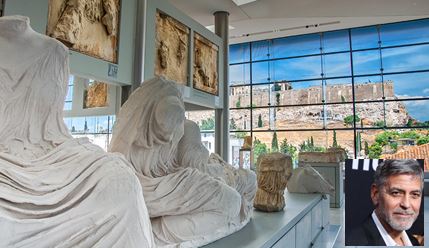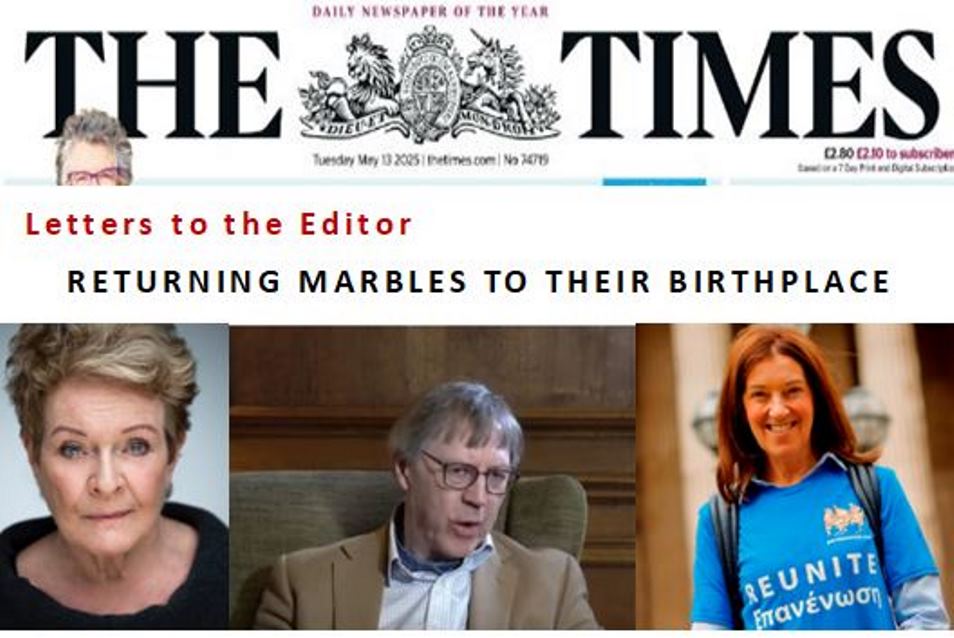“Friendship seems to hold states together, and lawgivers care more for it than for justice; … and when men are friends they have no need of justice, while when they are just they need friendship as well, and the truest form of justice is thought to be a friendly quality.” Aristotle - Nicomachean Ethics, Book VIII, Ch 1.
Greece has been friends with the people of the United Kingdom for centuries, through good times and bad.
In October 1940, when Mussolini sought to occupy strategic Greek sites, the Greek Prime Minister (even though he was not democratically elected) simply declared, "Ohi!" ("No!") and Greece became the only European country that did not capitulate to the Italian fascists and the German Nazis.
Inspired by the Greek resistance, Churchill said “Hence we will not say that Greeks fight like heroes, but that heroes fight like Greeks!”
On being asked in Parliament during the war whether it would consider returning the Parthenon marbles to Greece as a gift in exchange for its loyal bravery, the British Foreign Office conducted an in-depth process of consultation that received positive answers from all involved, including the British Museum itself. The Museum conceded that “the Greeks regard it as a spoliation of their national heritage under Turkish tyranny” and that “the point is that the Acropolis of Athens is the greatest national monument of Greece, and that the buildings to which the Marbles belonged are still standing or have been rebuilt”. The relevant official in the Foreign Office, however, felt that the matter would best be deferred for further consideration until the end of the war, when transport would be safer and the return “would set the seal on Anglo-Greek friendship and collaboration in the way that would most appeal … to Greek patriotic sentiment”.
The long history of friendship and good feeling in Britain towards the cause of the reunification of the marbles is demonstrated by the many British scholars, writers and intellectuals who have made public statements in support of the cause, the most notable being Lord Byron. The BCRPM is continuing a long and honourable philhellenic tradition in seeking to encourage the Aristotelean idea of a just and friendly act: for the return to Athens of the Parthenon Marbles would be just that. It is time.
Jane Suzman
Chair, British Committee for the Reunification of the Parthenon Marbles
25 June 2020






Comments powered by CComment